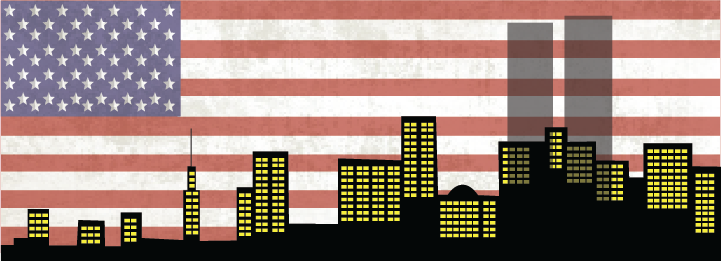Owen’s Opinion
We need to find strength in unity again

 After the Sept. 11 Terrorist Attacks in 2001, Americans united with patriotism and support for each other. Today, 18 years and six days later, the United States continues to grow more politically divided. To end this polarization, it is imperative that Americans, especially those born after the attacks, learn about post-9/11 unity, reflect on it, and replicate it.
After the Sept. 11 Terrorist Attacks in 2001, Americans united with patriotism and support for each other. Today, 18 years and six days later, the United States continues to grow more politically divided. To end this polarization, it is imperative that Americans, especially those born after the attacks, learn about post-9/11 unity, reflect on it, and replicate it.
Last Wednesday, former President Obama tweeted that he remembered a “spirit of unity and togetherness” after 9/11 that is absent amid today’s political climate. Obama couldn’t be more right about that — not only is America divided right now, but it is polarized and completely politicized.
The polarization is evident in cities like Boston, New York, and Portland, Oregon, where radical political groups have started physical brawls because of policy disagreement in the past years.
The night of the attacks, both Democratic and Republican senators stood closely together on the steps of the Capitol and sang “God Bless America” in solidarity. President George Bush then remarked, “America is united.”
The simple bipartisan support for Americans dealing with the tragedies fostered a sense of unity and pride that touched millions of Americans. According to multiple soldiers interviewed by the Seattle Times, that pride inspired them to enlist. The Marines experienced an obvious increase in the number of enlistments in the following years.
In cities across the country, Americans of all races, religions, and sexual orientations mourned those who died. The Bay Area held public and religious services for victims in the following weeks. It didn’t matter what race, religion, or political party you were a part of — all that mattered was that we were Americans, and that our common principles were under attack.
Even results from surveys taken after 9/11 elucidate the unity that touched America. A Gallup poll taken in 2002 asked people how they felt to be an American. Ninety percent of both Democrats and Republicans surveyed responded with “very proud.” In 2017, the same survey was conducted, but 92 percent of Republicans and only 67 percentage of Democrats said they were “very proud” to be Americans.
Our unity after 2001 had nothing to do with politics and everything to do with patriotism. Americans shared a love for freedom, a contempt for the attacks that threatened our country, and most importantly, pride in being American.
There are over 70 million voters who aren’t old enough to remember the unity that followed 2001, and maybe that’s why today’s political climate is so turbulent, especially among young people. Nonetheless, those who don’t remember it should ask their parents, teachers and grandparents what it was like to be an American then. Doing so would not only teach you about unity, but also about how patriotism can be used to find common ground with other Americans who may not see eye to eye with you.
